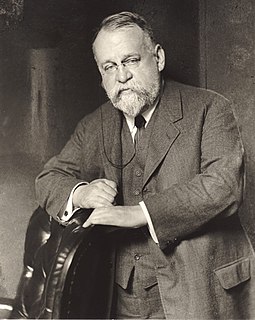A Quote by Pope Francis
It seems clear to me also that climate change is a problem which can no longer be left to our future generation.
Quote Topics
Related Quotes
Some urge we do nothing because we can't be certain how bad the (climate) problem might become or they presume the worst effects are most likely to occur in our grandchildren's lifetime. I'm a proud conservative, and I reject that kind of live-for-today, 'me generation,' attitude. It is unworthy of us and incompatible with our reputation as visionaries and problem solvers. Americans have never feared change. We make change work for us.
...the world needs to face up to the challenge of climate change, and to do so now. It is clear that climate change poses an urgent challenge, not only a challenge that threatens the environment but also international peace and security, prosperity and development. And as the Stern report showed, the economic effects of climate change on this scale cannot be ignored, but the costs can be limited if we act early
It's very clear that global climate change is occurring on earth, but it's also been very clear that that has always happened on earth. We've always had a changing climate on earth. We all know about ice ages. We know when our continent was covered with ice sheets. We know glaciers come and they go. It puzzles me that people forget that.
Being told about the effects of climate change is an appeal to our reason and to our desire to bring about change. But to see that Africans are the hardest hit by climate change, even though they generate almost no greenhouse gas, is a glaring injustice, which also triggers anger and outrage over those who seek to ignore it.
Climate change is not a discrete issue; it's a symptom of larger problems. Fundamentally, our society as currently designed has no future. We're chewing up the planet so fast, in so many different ways, that we could solve the climate problem tomorrow and still find that environmental collapse is imminent.
So we are left with a stark choice: allow climate disruption to change everything about our world, or change pretty much everything about our economy to avoid that fate. But we need to be very clear: because of our decades of collective denial, no gradual, incremental options are now available to us.
The Caring for Climate initiative is fully aligned with our own explicit commitments, which reflect our respect for society in which we operate, respect for the environment, respect for the future generations. Climate change must be addressed through mutually beneficial collaboration and multi-stakeholder channels to be effective ultimately.





































